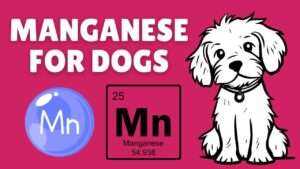As a devoted dog owner, ensuring the health and well-being of your furry companion is a top priority. One essential component of your dog’s diet and overall health is vitamin A. In this handbook, we’ll explore everything you need to know about vitamin A for dogs, including its importance, sources, benefits, and potential risks.
Contents Overview
Understanding Vitamin A
Vitamin A is a fat-soluble vitamin that plays a crucial role in various physiological functions in dogs. It exists in two forms: retinol (preformed vitamin A) and carotenoids (provitamin A), with retinol being the active form that can be utilized by the body.
Functions of Vitamin A in Dogs
Vitamin A serves several essential functions in dogs’ bodies, including:
- Vision: Vitamin A is vital for maintaining healthy vision and supporting proper eye function, particularly in low-light conditions.
- Immune Function: It plays a role in supporting the immune system, and helping dogs fight off infections and diseases.
- Skin and Coat Health: Vitamin A contributes to healthy skin, promoting cell growth and repair, and a shiny coat.
- Reproductive Health: It is necessary for normal reproductive function and fetal development in pregnant dogs.
Dietary Sources of Vitamin A for Dogs
Dogs can obtain vitamin A from various dietary sources, including:
- Liver: The liver from animals like beef, chicken, and fish is exceptionally rich in vitamin A.
- Egg Yolks: Egg yolks contain vitamin A, along with other essential nutrients.
- Fish: Certain types of fish, such as salmon and mackerel, provide vitamin A.
- Fruits and Vegetables: Colorful fruits and vegetables like carrots, sweet potatoes, and spinach are sources of carotenoids, which can be converted into vitamin A in the body.
Benefits of Vitamin A for Dogs
Providing adequate vitamin A to your dog offers numerous benefits, including:
- Healthy Vision: Vitamin A supports optimal vision, ensuring that your dog can see well in various lighting conditions.
- Strong Immune System: It helps bolster the immune system, reducing the risk of infections and illnesses.
- Glowing Coat: Vitamin A promotes healthy skin and a shiny coat, enhancing your dog’s overall appearance.
- Reproductive Health: Adequate vitamin A is essential for normal reproductive function and the health of pregnant dogs and their offspring.
Potential Risks of Vitamin A Deficiency or Toxicity
While vitamin A deficiency is relatively rare in dogs, inadequate intake can lead to health problems such as vision impairment, poor immune function, and skin issues. On the other hand, excessive intake of vitamin A supplements can lead to toxicity, causing symptoms like bone abnormalities, joint pain, and liver damage.
Consulting a Veterinarian
If you have concerns about your dog’s vitamin A intake or suspect a deficiency or toxicity, it’s essential to consult your veterinarian. They can provide guidance on your dog’s dietary needs, recommend appropriate supplements if necessary, and address any health issues related to vitamin A.
Bottom Line
Vitamin A is a vital nutrient for maintaining the health and well-being of your beloved canine companion. By ensuring that your dog receives adequate vitamin A through a balanced diet and regular veterinary care, you can help promote optimal vision, immune function, and overall vitality. With the right approach to nutrition and health care, you can provide your dog with the foundation for a long, happy, and healthy life.




































+ There are no comments
Add yours